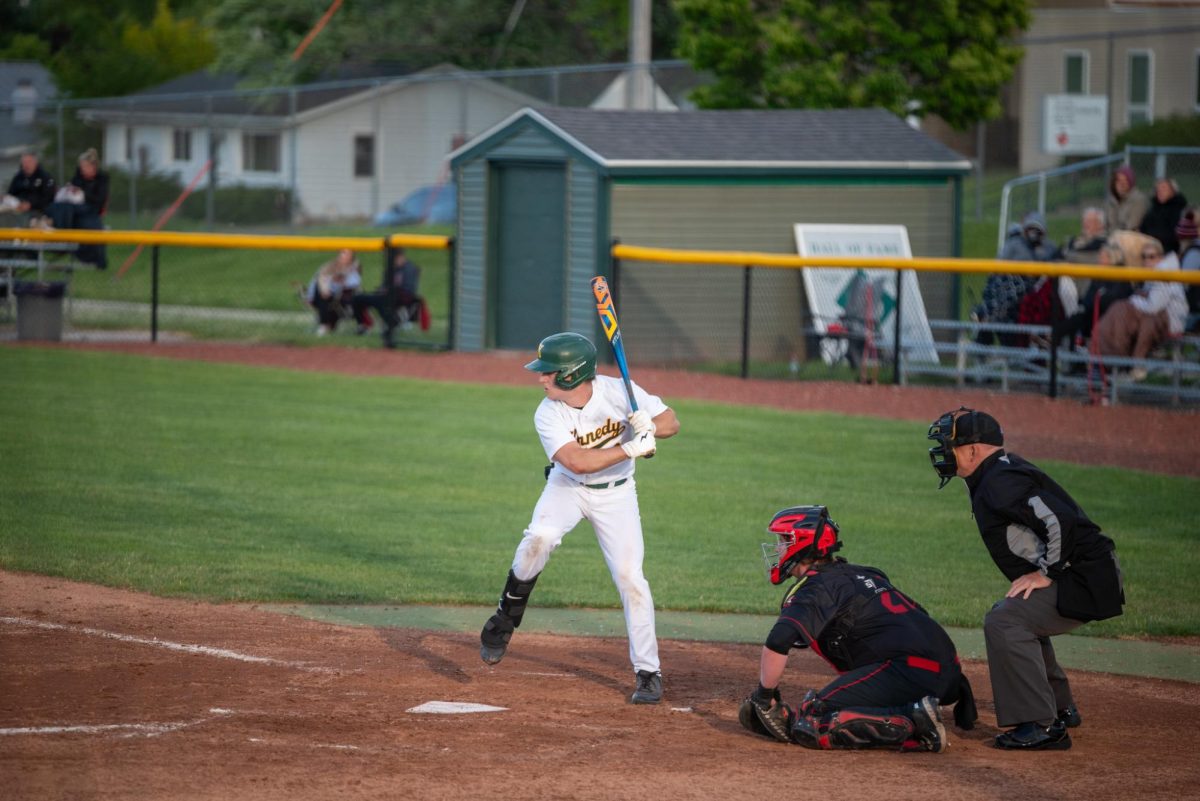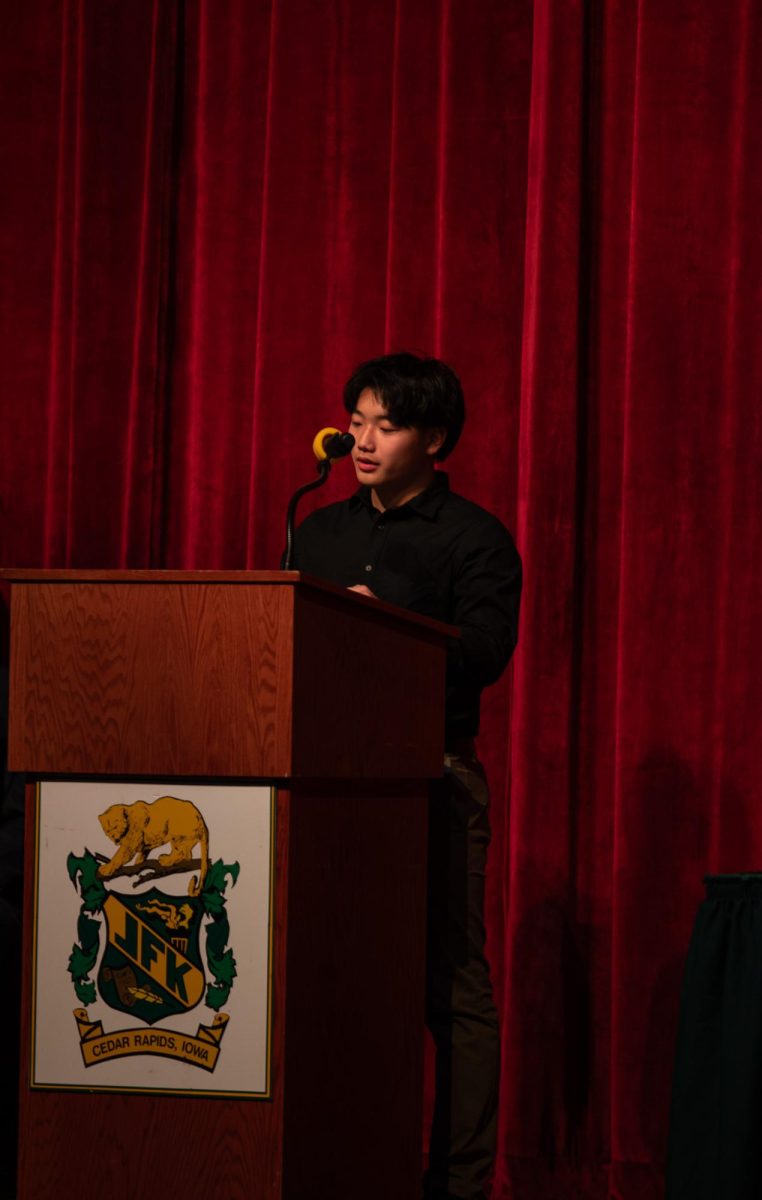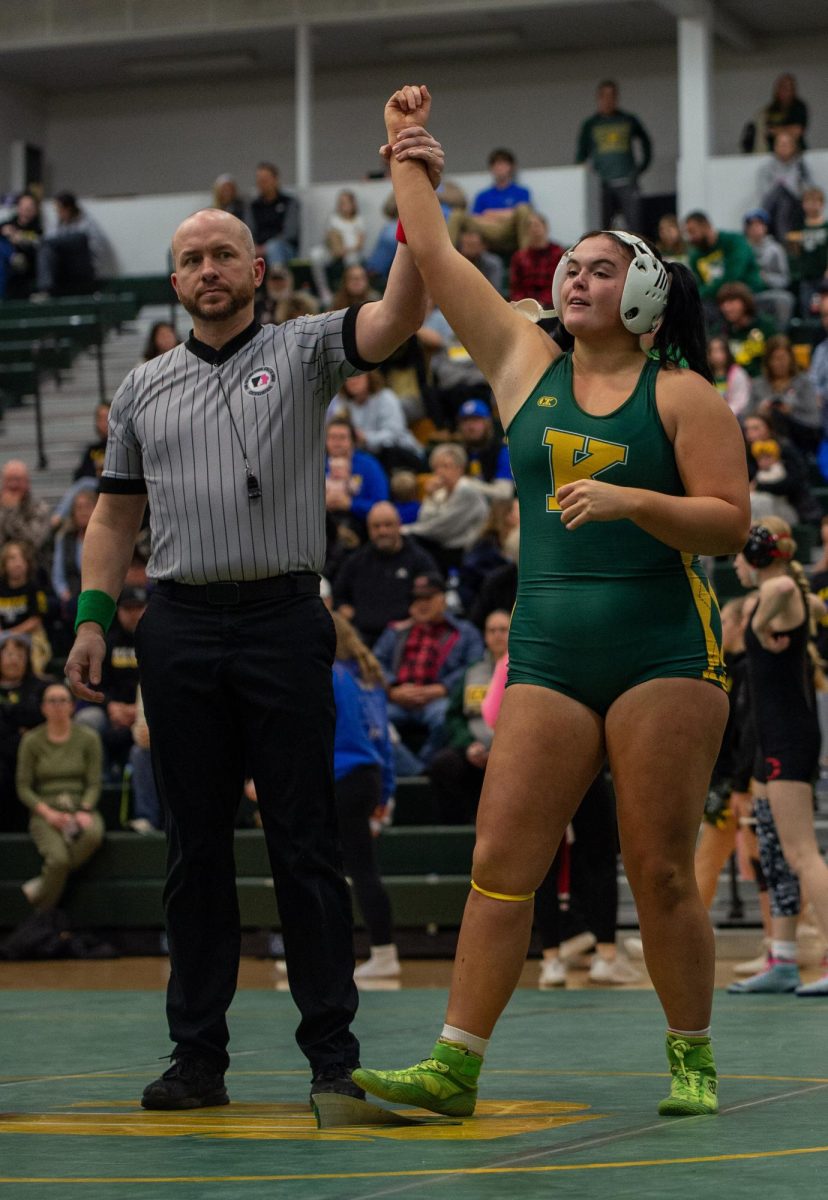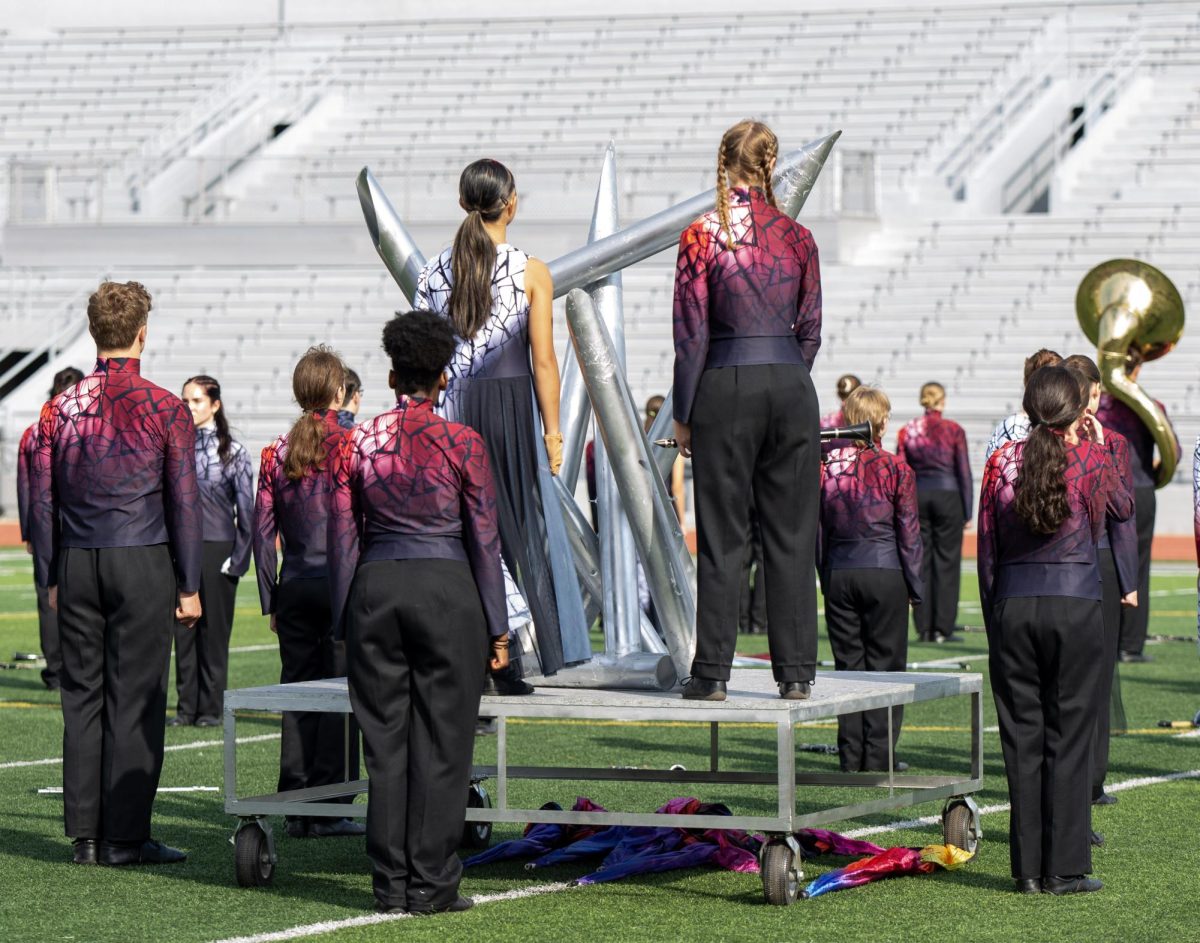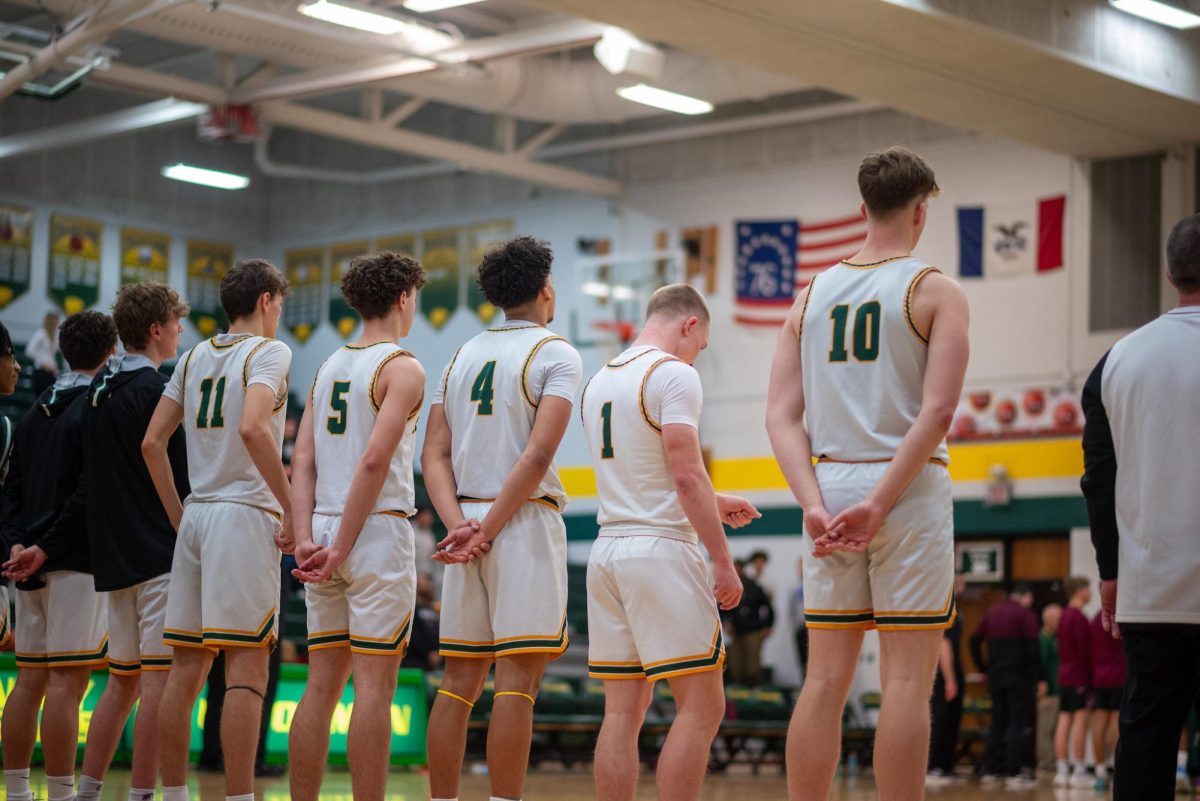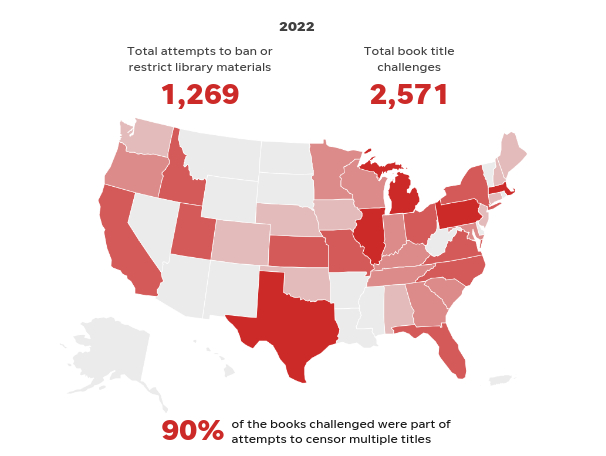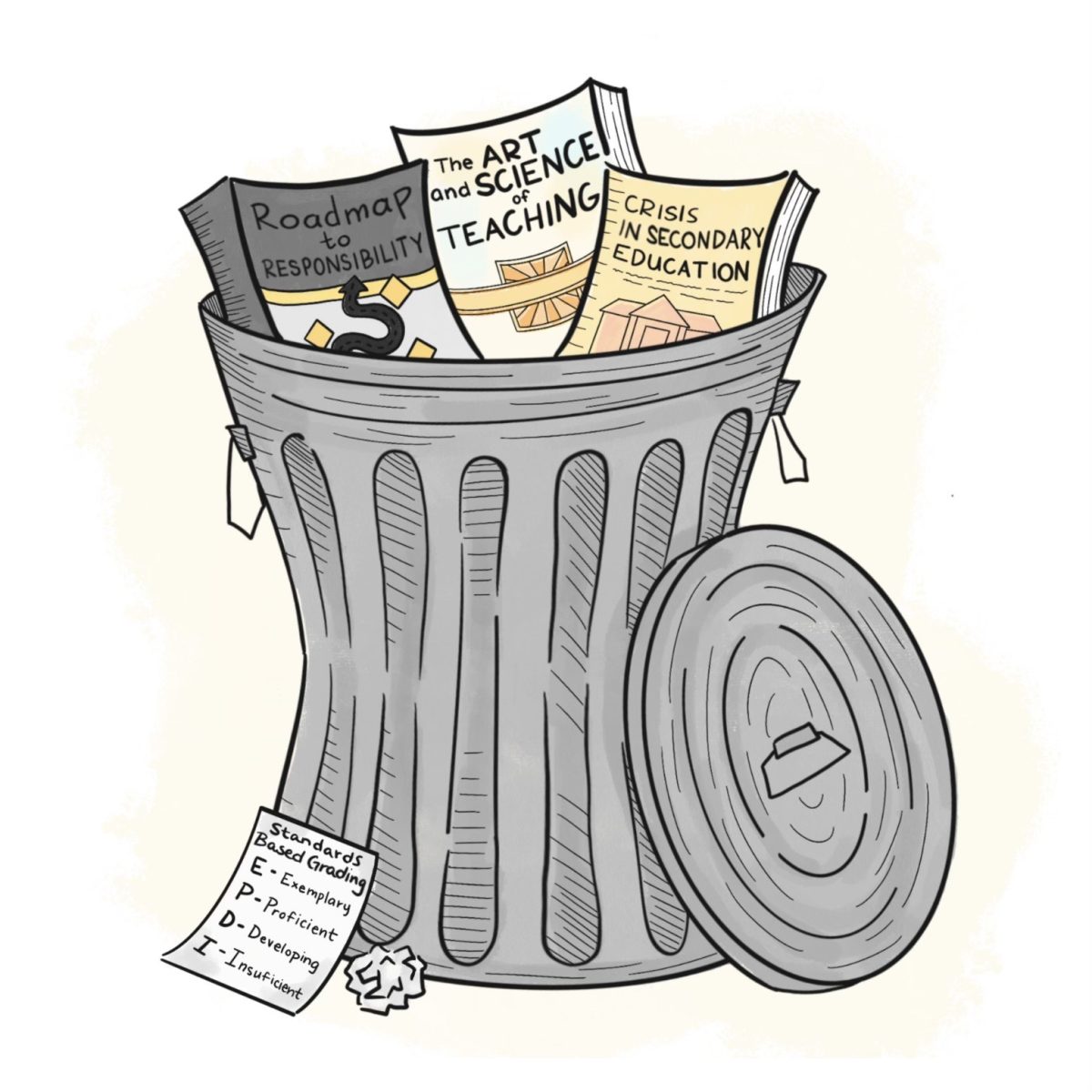Book banning is counterproductive.
The purpose of education is to provide young adults with factual and pertinent knowledge by teaching them about various subjects and history in a supervised setting. Books are the foundation of both life and education. When books are banned, children are forced to learn about controversial subjects in an unsupervised setting. Why do biased officials still wish to restrict students’ access to education?
Iowa Governor Kim Reynolds has been focused on education reform since the back half of 2023. Reynolds has put forth seven legislative proposals pertaining to education, expressing her belief that parental control should be exercised over a child’s education.
“This legislative session, we secured transformational education reform that puts parents in the driver’s seat…and empowers teachers to prepare our kids for their future,” Reynolds said at a Moms For Liberty event. “Education is the great equalizer and everyone involved – parents, educators, our children – deserves an environment where they can thrive.”
Reynolds stressed the need for educational reform, but wouldn’t that mean helping children grow into adults by guiding them through mature topics? Learning about controversial topics in a controlled environment is key to developing informed and educated children.
Senate File 496 bans the majority of books with sex acts and forbids curriculum and instruction about sexual orientation and gender identity from kindergarten through the sixth grade. The file encourages educators to teach from an “age-appropriate” approach for purposes of human growth and development. Yaa Gyasi’s Homegoing was one of the books outlawed.
This novel was read in my African American Literature and Composition class, despite being prohibited due to its use of sexual imagery. The description of sexual acts leading to the book’s banning wasn’t promoted by reading it; rather, it provided historical context for the violations of women.
“[Homegoing] is a book that most of my students wouldn’t pick up on their own – as are most books teachers introduce to students,” African American Literature and Composition teacher Michelle Frye said. “The violence of rape and the struggle of sexual identity appear in the book but so does unconditional love and characters who, despite the horrific obstacles of white supremacy, thrive. Books like this give the reader an intimate look at times and places that are often glossed over.”
Gyasi was one of many POC and LGBTQ+ authors who appeared in the book ban list for Iowa City for 2024, including George M. Johnson, Susan Kuklin, Echo Brown, and Toni Morrison.
According to the Des Moines Register, over 300 books have been banned across Iowa because of Senate File 496 and more books will continue to be banned across schools. Life lessons from diverse authors are lost as more books get pulled off of school library shelves.
With the initiation of Senate File 496, students and parents came together to challenge the file. One of the lawsuits came from the Iowa State Education Association (ISEA) which partnered with a high school student, two middle school teachers and four bestselling authors whose books were banned. The file’s violations of the First and Fourteenth Amendments formed the foundation of the association’s claim.
“The First Amendment guarantees the right to read and to be read, to exchange ideas and viewpoints without unreasonable government interference,” ISEA’s press release said. “The new Iowa state law flouts this core principle of the Constitution with sweeping legislation that eliminates student access to books with ideas and perspectives disliked by state authorities.”
The Cedar Rapids Community School District’s (CRCSD) motto is “every learner, future ready.” But with recent Iowa legislation, it seems like our education is being removed rather than enhanced. Preparing children for the world doesn’t come from shielding, sheltering or ignoring. It comes from enriching, informing and giving children the opportunity to see both sides of an argument.
“The district has made no official stance on the book ban mandate and will wait for the court’s ruling to then make a decision,” CRCSD librarian Michelle Kruse said.
On behalf of eight Iowa students and families, The American Civil Liberties and the Lambda Legal team challenged the senate file on the same merits of violating the Constitutional rights of students. The case was argued in front of U.S. District Court Judge Stephen Loche on Dec. 29, 2023. After hearing the argument Judge Locker granted a temporary injunction that would block the enforcement of the bill until the court issues a ruling on the suit.
“We don’t have nearly enough books in the curriculum where black characters are the main characters – the heroes and heroines,” Frye said. “The characters may be flawed (only the most interesting characters are) and everyone would benefit from reading thought-provoking books.”
The definition of counterproductive is having the opposite of the desired effect. Reynolds anticipates that book banning will shield children from “controversial and sensitive” topics and move children away from learning about the LGBTQ+ community and sexual topics. However, the world we live in today only makes this policy productive in exposing children to biased and non-factual information that children take as accurate.
This is especially an issue because children are introduced to the internet and social media at an age where they haven’t developed the skill to decipher truthful information and non-factual biased information. We then have an issue where children are going into the world misinformed about controversial topics that are affecting their communities. Speaking about these issues in a controlled environment with factual information provided by an educated person prevents this. Yet, we can’t even have these discussions because the books that spark these conversations are being banned from curriculums.
But banning books does not limit children’s access. We need to focus on social media if we want to limit what is exposing our children to a world they are not ready to handle.
According to a Common Sense Media report from 2021, 42% of kids receive their first phone at age 10 and 71% of kids have their own cell phone by the time they are 12 years old. The study also reveals that the percentage of 8 to 12-year-old kids that use social media increased by 31% between 2019 and 2021. A 2016 Common Sense Media report showed that on average by the age of 12.6, a child has created their own social media account.
As soon as children receive a phone and create social media profiles, they are exposed to pictures, videos, and discussions around racism, sex, and the LGBTQ+ community. Parents give their kids technology and don’t regulate it, so kids are exposed to these issues regardless of the topics of books being read in the classroom.
Reynolds’ education agenda has included, limiting the rights of LGBTQ+ people and limiting education about race, identity and sexual topics when what school districts across Iowa need is funding, building updates and solutions to overfilled classrooms. If the government wants to spend time on education reform, let it be about issues that matter instead of wasting time on legislation that weakens our education system.
Banning books bans safe conversations about nuanced topics that should be discussed in a safe setting, silencing stories, silences communities and leaves children going into the world uninformed. It’s a waste of time and a waste of resources that could be used to genuinely improve Iowa’s quality of education.

